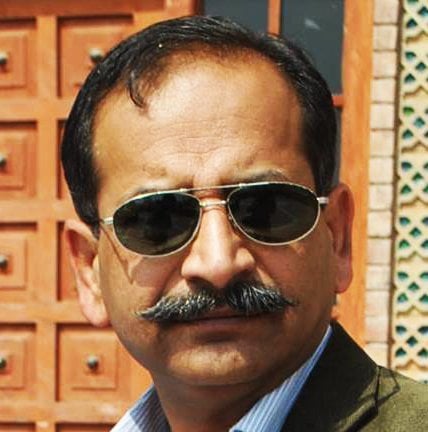Neither all Indians are extremists nor do they all follow the Hindutva philosophy as India is a homeland of millions of Christians, Sikhs and Muslims too. Even in the Hindu community there are people who are very much moderate, sensible and no doubt caring for the Indians belonging to other religious communities. The best example of such moderate people is Abhay Kumar who is at present a doctoral scholar at Centre for Historical Studies, Jawahar Lal Nehru University New Delhi. He has recently sent an open letter to the President of India in which he has requested him to look into the matter of a newly introduced course for its scholars with the name of ‘Islamic Terrorism.’ According to Jawaharlal Nehru University Act 1966, this university would promote social justice, secularism, democratic way of life; it would work for the solution of the problems of society with scientific approach. But by introducing this new course the university administration has simply crushed the whole ideology which was the basis of existence of this university. It seems that the same Hindutva philosophy has seeped into the system of the university which already has made India a hell for the Muslims and other minorities. The decision of the JNU of offering this new course is being strongly criticized by the minorities living in India. In his letter, Abhay Kumar has given very logical arguments in favour of Islam and the Muslims. These arguments are however an eye-opener to the handful Muslims also who are involved in the menace of terrorism. He said, “History tells us that Islam plays a great role in the field of knowledge, science and production. Contrary to the charges against Islam for being ‘anti-modern’, the historical reality is that the western renaissance owes a lot to Islam. The India history also affirms the same fact. Islam brought about many positive changes in this society, contributing to every walk of life from knowledge to production, from art and culture to architecture and music. Egalitarian ideas of Islam also confronted the caste society and gave much relief to Dalits and lower castes. The Historian Sulaiman Nadvi who was associated with the establishment of Jamia Millia Islamia has shown that before the coming of Islam, education was denied to the lower castes but things began to change under the egalitarian influence of Islam. History also tells us that the country’s relations with Muslim/Islamic countries have always been friendly. Even today, lakhs of Indians work in Muslim countries and send huge remittance back home, boosting Indian economy. Needless to say, the country’s energy security is very much dependent on these Muslim countries.” Concluding his letter he said, “I make an urgent appeal to you as the Visitor of JNU to look into the matter. If such a course called ‘Islamic Terrorism’ is introduced, it may help some people and a few organizations gain some personal benefits, but ultimately it will create religious tension in our society and bring a bad name to our country outside.” It is very much possible that Abhay Kumar might have to face the rage and anger of the extremist elements of the Indian society but by writing this letter and by raising his voice in favour of the Muslims, he has made himself a part of the history.
Stamping a country as a terrorist country or a religion as a religion of extremists is always unjust and unfair. No country encourages terrorism and no religion promotes extremism; it is always a group of people which brings a bad name to the whole country or defames a religion. India is not a terrorist country but there are some people, certainly very few in numbers, whose notorious actions are defaming the whole nation. Let us see back to the horrible Gujrat massacre of 2002. According to the official figures, 660 people were killed in that massacre, 1074 people were injured and over 48,000 lost their property. Unofficial reports claim as high as 2000 deaths. The Muslim community suffered the majority of the losses. Out of the 512 deaths reported in the police complaints, 430 were Muslims. Property worth 42 million rupees was destroyed during the riots, with Muslims losing 32 million worth of property. But at the same time, there are examples of local Hindus who did a lot to save their Muslim neighbours from the rage and violence of that out of control mob. The fact of the matter is that so many things on national level depend upon the leaders who are running the government. Rulers are everywhere the policy-makers. They can promote rather patronize hatred, violence and hostility among different sections of their society and at the same time they can support and sponsor love, forbearance, tolerance and patience also. Certainly it is the responsibility of the BJP government to keep an eye on such notorious activities which would directly affect the Muslims living in India. Being a secular state, India must take care of the rights of its entire citizens. It is something very strangely unfortunate that in spite of Pakistan’s all efforts; the world is not willing to exclude its name from the so-called list of ‘supporters of terrorism’; this behavior in itself is the worst type of terrorism.
